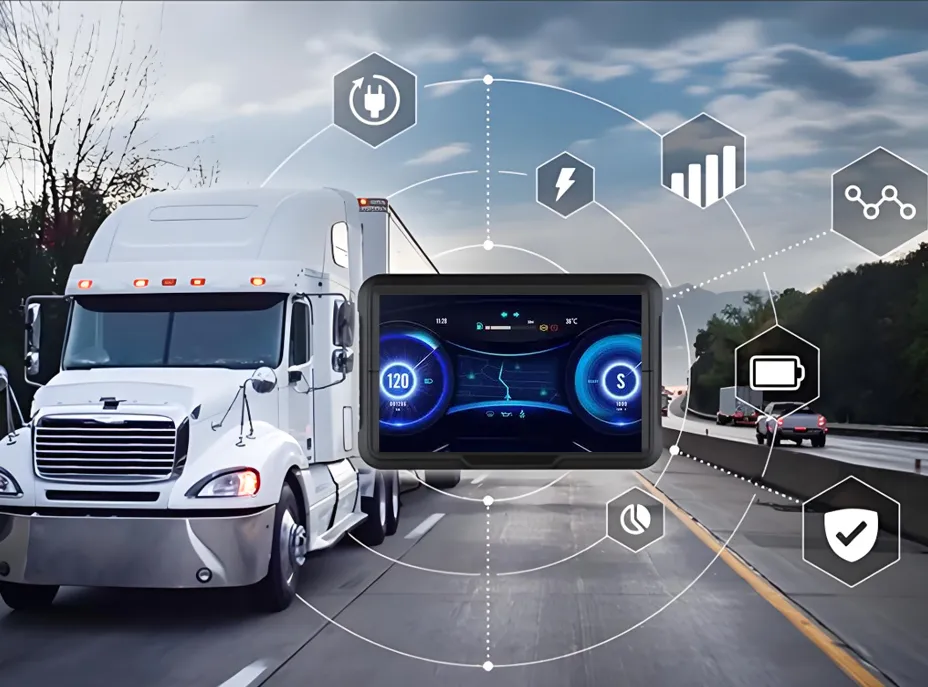Vehicle-mounted Panel PCs play a vital role in modern transportation, logistics, emergency rescue and other fields. Choosing a suitable vehicle-mounted Panel PC is not only related to work efficiency and user experience, but also directly affects the stability and security of the entire system. The following is a detailed vehicle-mounted Panel PC purchase guide to help you clarify the key points and formulate a reasonable purchase strategy.

1. Clarify the usage scenarios and needs
Different industries and vehicles have different needs for tablet computers. For example, in the field of logistics and transportation, tablet computers need to have strong durability, shock resistance and stability to cope with complex transportation environments; while in the field of smart transportation, more attention is paid to their navigation accuracy, real-time communication capabilities and data processing capabilities. Therefore, before purchasing, be sure to list the function list according to actual needs, including but not limited to GPS positioning, high-definition display, touch sensitivity, storage and processor performance.
2. Pay attention to the core hardware configuration
1. Processor: The processor is the core component of the vehicle-mounted Panel PC, and its performance directly affects the operating speed and multi-tasking capabilities of the device. The current mainstream in-vehicle industrial tablets mostly use high-performance eight-core CPUs, such as Qualcomm Snapdragon series or Intel Core i5/i7, with a main frequency of up to 2.0GHz or more, and use advanced process technology to ensure that while providing strong processing power, energy consumption is effectively controlled.
2. Memory and storage: Large-capacity memory and storage space are the key to ensuring the smooth operation and storage of large amounts of data for in-vehicle industrial tablets. Generally speaking, 6GB RAM with 128GB storage space has become standard. For application scenarios that require higher performance, higher-configuration products can be selected. At the same time, pay attention to whether extended storage is supported so that capacity can be expanded according to actual needs. SSD solid-state hard drives have the advantages of fast read and write speeds and good shock resistance, and are an ideal choice for storage space for in-vehicle industrial tablets.
3. Evaluate durability and stability
In-vehicle industrial tablets need to operate in complex and changeable in-vehicle environments, so their durability and stability are crucial. Choosing an in-vehicle industrial tablet with high dust and water resistance (such as IP67, IP68) can ensure stable operation in harsh environments. These tablets usually use special materials and sealed designs to effectively prevent the intrusion of dust and moisture. In addition, its anti-vibration performance and heat dissipation performance must also be considered to avoid performance degradation or equipment damage caused by vibration, impact or overheating.
4. Consider connectivity and scalability
In-vehicle industrial tablets that support 2.4G and 5G dual-band WiFi, Bluetooth 5.1, and 2G/3G/4G and other network communication methods can ensure real-time data transmission and interconnection. These functions are particularly important for application scenarios that require remote monitoring and management. At the same time, in-vehicle industrial tablets should be equipped with a variety of interfaces, such as USB, HDMI, SD card slots, etc., to meet users' needs for connecting external devices and transmitting data. Some in-vehicle industrial tablets also support customized interfaces and expansion modules, such as scanning heads, RFID modules, etc., to meet the needs of specific industries.
5. Pay attention to brand and after-sales service
Choosing an in-vehicle industrial tablet from a well-known brand can ensure the quality and reliability of the product. Well-known brands usually have a complete R&D, production and sales system and a good market reputation. In addition, high-quality after-sales service is an important part of ensuring product quality and user rights. When purchasing, you need to pay attention to whether the brand provides a complete after-sales service system and the response speed and problem-solving ability of after-sales service.
6. Consider cost-effectiveness and customization capabilities
The prices of in-vehicle industrial tablets of different brands and configurations vary greatly. When purchasing, you need to weigh them according to actual needs and budget. For car owners in specific industries or with special needs, customized in-vehicle industrial tablets may be required. Therefore, when choosing, you need to pay attention to whether the brand has customization capabilities and information such as the process and cost of customized services.
Generally speaking, purchasing a suitable in-vehicle industrial tablet requires comprehensive consideration and weighing from multiple aspects. By clarifying the usage scenarios and needs, paying attention to the core hardware configuration, evaluating durability and stability, considering connectivity and scalability, paying attention to the brand and after-sales service, and considering cost-effectiveness and customization capabilities, you will be able to purchase an in-vehicle industrial tablet with excellent performance, durability and reliability, strong adaptability and high cost-effectiveness, providing strong support for the informatization and intelligent construction of vehicles.



